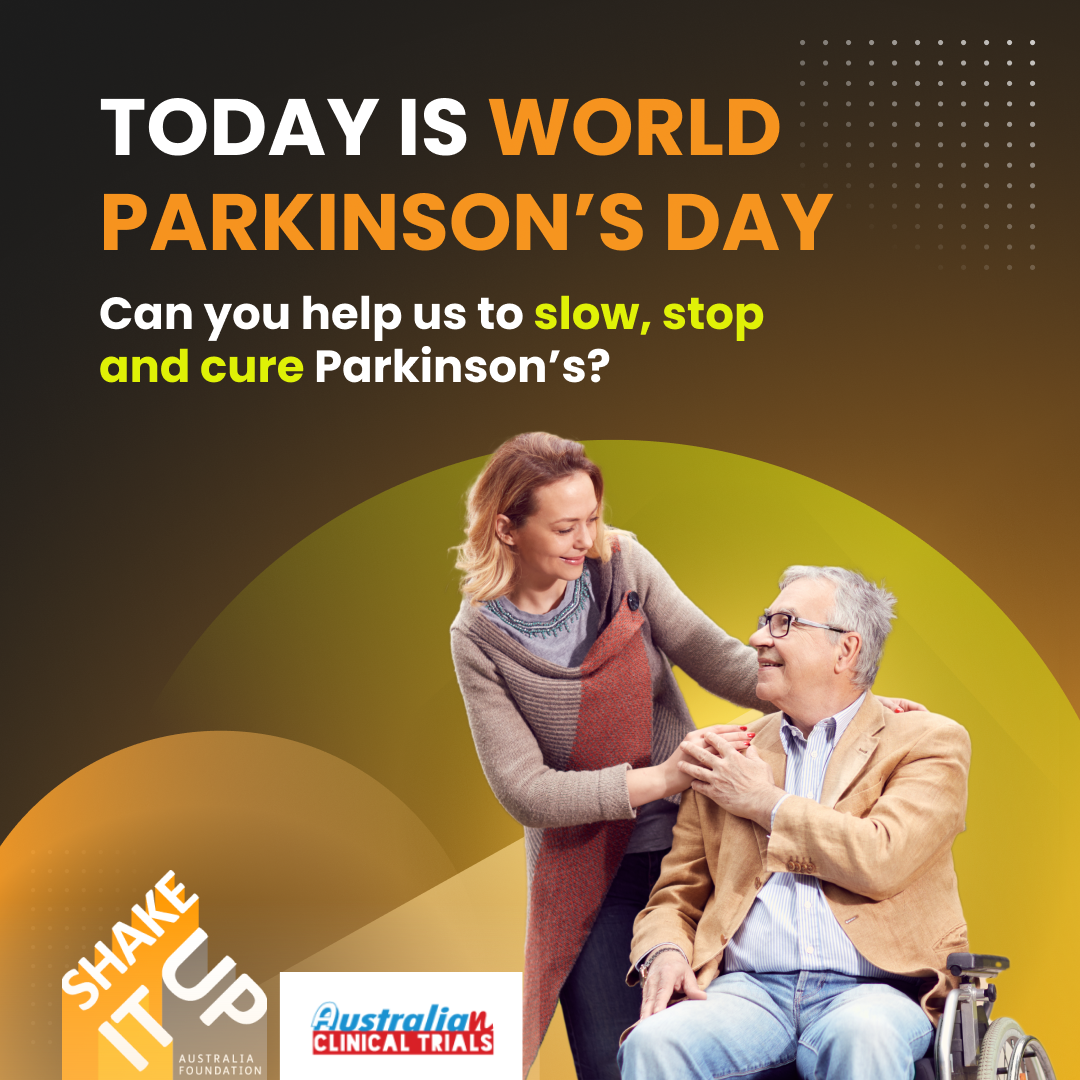Did you know that April is World Parkinson’s Awareness Month? Moreover, April 11th is World Parkinson’s Day. As one of Datapharm Australia’s AustralianClinicalTrials.com initiatives, we are proud to be a campaign partner this year for the Shake It Up Australia Foundation. Our aim is to increase the visibility and accessibility of Parkinson’s disease trials in Australia!
Parkinson’s disease is a progressive neurological disorder that affects movement and can cause tremors, stiffness, and difficulty with balance and coordination. Approximately 1 in 120 Australians suffer from this debilitating disease, there are a number of therapies available – both current and in development – aiming to help reduce symptoms.
To provide even better Parkinson’s treatments, clinical trials are a crucial step. There are many different types of Parkinson’s trials, including ones that test new drug compounds and devices (interventional trials), ones that aim to better understand the disease (observational trials), and tests of non-pharmacological interventions. Participation in any of these trials help advance our medical knowledge of the disease.
Searching trial databases for clinical trials
There are many resources available online for finding Parkinson’s trials close to you. For those living in Australia or New Zealand, visit the Australian New Zealand Clinical Trials Registry (ANZCTR). The ANZCTR is the primary registry for this region, and also takes information about Australian trials from the American Government registry. The ANZCTR can be searched by location, recruitment status, and keywords in the title or description.
A complementary source of information for clinical trials is AustralianClinicalTrials.com. Trial staff can post and manage trial listings, written for the public. You can search these listings by recruiting status, geographic location, title, description, and your own characteristics (gender, age, illness, and so on). The location of the trial can be viewed directly on the page using Google Maps, and an in-line contact form streamlines the process of applying for a trial.
These websites often allow you to sign up for new trial notifications as they are posted. You can sign up for notifications from AustralianClinicalTrials.com or get email notifications on the Australian Government website. Google also has a system where you can sign up for alerts on any topic you wish.
Finding clinical trials through support groups and networks
You can also visit the websites of specialised Parkinson’s organisations. Most websites post alerts about currently recruiting clinical trials and other research opportunities. These include the Shake It Up Foundation, the Michael J. Fox Foundation, Parkinson’s Australia, and Parkinson’s NSW. Many more such groups can be found through the Australian Government’s website here. Many of these organisations have pages on social media that can be followed as well for current information.
Another way to find clinical trials is to speak with your doctor or neurologist – they might directly be involved in Parkinson’s trials, or a trial might be run in their clinic. Similarly, some pharmacists might be involved with drug preparation or dispensing for clinical trials. Recruitment posters may also be posted in or around the places where these professionals work. However, it is a fact that not all doctors and/or pharmacists are aware of clinical trials nor where to find them. Community-run Parkinson’s support groups, both online and offline, may have more information about ongoing trials and other research initiatives in your area.
Clinical trials play a vital role in developing new treatments and improving the quality of life for people with Parkinson’s disease. The hardest step in finding a clinical trial is realising there are many resources available to help you out! Finding the right clinical trial can seem daunting, but armed with resources, support, and knowledge, you can find a trial that suits you, and make your contribution to the fight against Parkinson’s disease.
